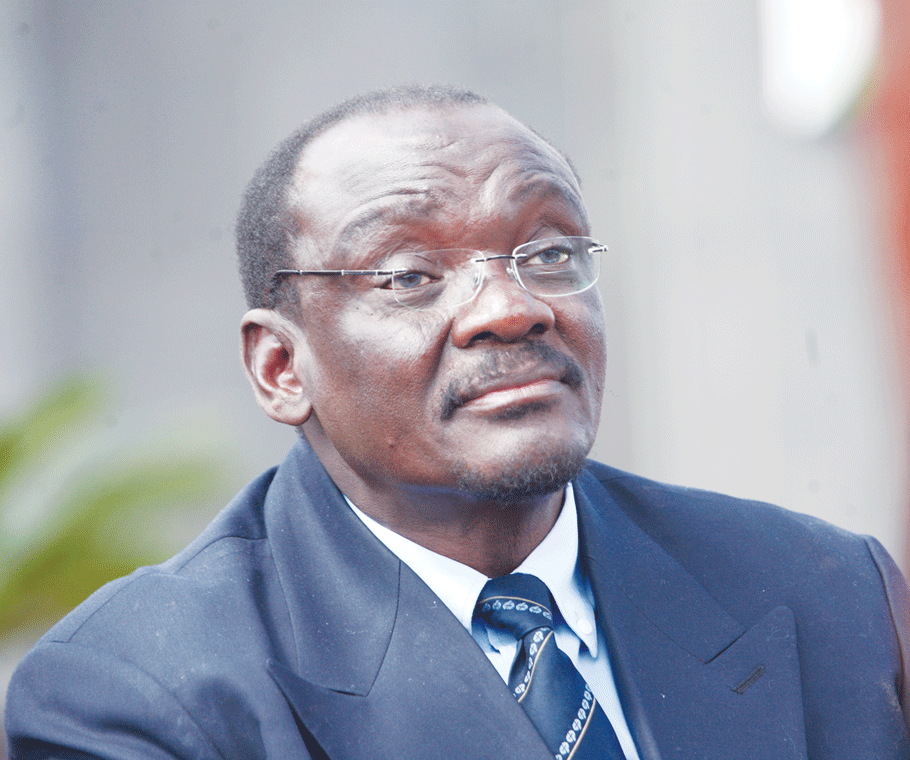
BY JAIROS SAUNYAMA
IN the border town of Beitbridge, senator Tambudzani Bugadi Mohadi (pictured)seems to be fighting a lone battle as the quest to secure justice against her ex-husband, Vice-President Kembo Mohadi, is finding no takers, especially among law enforcement agents.
Her story is a replica of many predicaments in a country where the elite and the powerful have become untouchables despite concerted efforts by churches, women’s groups and individuals to fight discrimination and patriarchy that have bred gender-based violence (GBV) .
Since April, she has tried to engage the police, demanding to know if her assault complaint against the VP was taken up for investigation and possible arrest. The country’s number two is being accused by his estranged wife of beating and further threatening to hack her down with an axe in full glare of close to 20 police officers.
Recently, the embattled Zanu PF senator wrote to the Officer Commanding Beitbridge police district, expressing displeasure at the way the assault case is being handled.
“The senator advised that she faced serious challenges in reporting the matter and obtaining the status of the police investigation. Since April 2019, the senator has requested for updates on the police investigation to no avail,” read the letter prepared by her lawyers Scanlen and Holderness.
Tambudzani’s tears represent a huge percentage of GBV victims in the country whose cases have been overshadowed and thwarted by the powerful and financially sound individuals. Her case has also exposed the country’s women pressure groups, which appear to have gone into hibernation since April despite making the usual noise associated with GBV cases that go viral on social media platforms.
“Politicians and those with money are powerful, if not untouchable. It is like looking for a needle in haystack if one tries to successfully launch a complaint against them. You cannot continue fighting such a battle when the law enforcement agents are reluctant to open a docket,” said a Marondera-based gender activist.
- Chamisa under fire over US$120K donation
- Mavhunga puts DeMbare into Chibuku quarterfinals
- Pension funds bet on Cabora Bassa oilfields
- Councils defy govt fire tender directive
Keep Reading
“In countries like South Africa, the case of Tambudzani would have torched a storm and led to the VP’s arrest. In Zimbabwe, nothing like that happens (arresting a powerful individual), he or she will only know his or her fate when his political and financial fortunes go the other way.”
Gender-based violence includes domestic abuse, rape and sexual assault, childhood sexual abuse, sexual exploitation, stalking and harassment, and harmful traditional practices. It predominantly affects women, although men too can be victims of GBV abuse.
Lead president and a GBV victim Linda Masarira said both the elite and low class men have been getting away with murder, despite victims filing abuse reports.
“Zimbabwe is still suffering from patriarchal dominance and systematic violations of women’s rights. For me, GBV has no class because there are even higher numbers in impoverished communities. It is not only the elite who are getting away with GBV because they can bribe the system,” she said.
“Plenty of women regardless of class are suffering from selective application of laws in GBV cases due to a non-responsive culture that naturally believes women are cry-babies.”
In Zimbabwe, about one in three women aged 15 to 49 or 35% of them have experienced physical violence and about one in four women have experienced sexual violence since the age of 15.
“We need to unite as women, regardless of political affiliation, tribe or religion as advocates for justice to all women who have fallen prey to abusive and violent men, including at work,” Masarira said.
According to the Zimbabwe Gender Commission about 22 women were being raped daily in Zimbabwe, while one third of females were being sexually assaulted by the time they celebrate their 18th birthday.
Speaking at the launch of this year’s edition of the 16 Days of Activism against GBV programme, United Nations resident co-ordinator Maria do Valle Riberio said some of the reported cases were never concluded through convictions.
“While there is still under-reporting on rape, which stands at 21%, the cases addressed are even fewer than what is reported. This is because, first: victims take time to report and, in the process, evidence is lost. Second, there is reportedly no sympathy by law enforcement towards survivors of rape and sexual abuse. Third, there is reported lack of thorough investigation,” she said.
Justice for Women Zimbabwe spokesperson Coezette Chirinda said corruption and lack of rule of law was hindering progress in the fight against GBV.
“What is happening with GBV cases is a reflection of where our justice system and social fabric is at the moment. We have no rule of law in the country and corruption is rampant with the haves getting away with it while the have-nots rot in jail. Women are suffering the most with men getting away with GBV crimes because of their money, power and influence,” she said.
For now, it seems as if women are fighting lone battles in as far as getting justice on GBV cases is concerned. Tambudzani will have to wait a little longer despite law enforcement officers allegedly being present when the alleged assault was committed. Perhaps the gods of justice will smile at her, but for now she has to wait a little longer.











